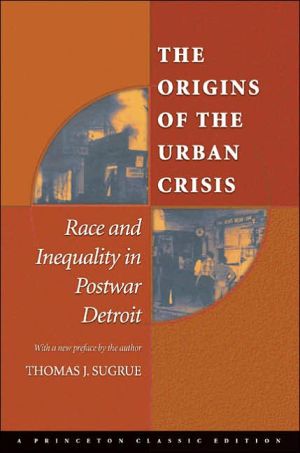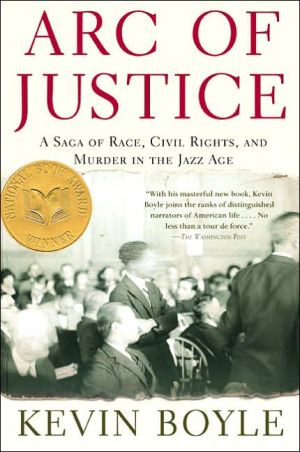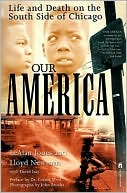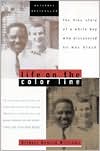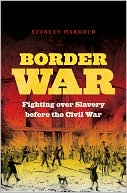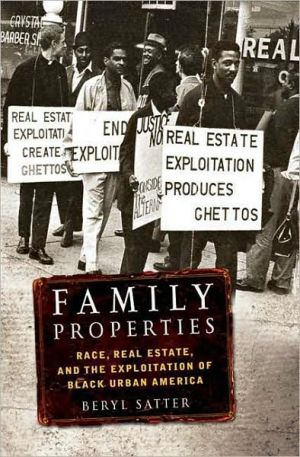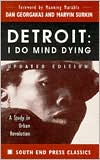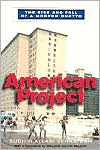The Origins of the Urban Crisis: Race and Inequality in Postwar Detroit
Once America's "arsenal of democracy," Detroit over the last fifty years has become the symbol of the American urban crisis. In this reappraisal of racial and economic inequality in modern America, Thomas Sugrue explains how Detroit and many other once prosperous industrial cities have become the sites of persistent racialized poverty. He challenges the conventional wisdom that urban decline is the product of the social programs and racial fissures of the 1960s. Probing beneath the veneer of...
Search in google:
Once America's "arsenal of democracy," Detroit over the last fifty years has become the symbol of the American urban crisis. In this reappraisal of racial and economic inequality in modern America, Thomas Sugrue explains how Detroit and many other once prosperous industrial cities have become the sites of persistent racialized poverty. He challenges the conventional wisdom that urban decline is the product of the social programs and racial fissures of the 1960s. Probing beneath the veneer of 1950s prosperity and social consensus, Sugrue traces the rise of a new ghetto, solidified by changes in the urban economy and labor market and by racial and class segregation.In this provocative revision of postwar American history, Sugrue finds cities already fiercely divided by race and devastated by the exodus of industries. He focuses on urban neighborhoods, where white working-class homeowners mobilized to prevent integration as blacks tried to move out of the crumbling and overcrowded inner city. Weaving together the history of workplaces, unions, civil rights groups, political organizations, and real estate agencies, Sugrue finds the roots of today's urban poverty in a hidden history of racial violence, discrimination, and deindustrialization that reshaped the American urban landscape after World War II.In a new preface, Sugrue discusses the ongoing legacies of the postwar transformation of urban America and engages recent scholars who have joined in the reassessment of postwar urban, political, social, and African American history.Bruce Nelson[Sugrue's] disciplined historical engagement with a complex, often in glorious, past offers a compelling model for understanding how race and the Rust Belt converged to create the current impasse. -- America Magazine
1"Arsenal of democracy"172"Detroit's time bomb" : race and housing in the 1940s333"The coffin of peace" : the containment of public housing574"The meanest and the dirtiest jobs" : the structures of employment discrimination915"The damning mark of false prosperities" : the deindustrialization of Detroit1256"Forget about your inalienable right to work" : responses to industrial decline and discrimination1537Class, status, and residence : the changing geography of black Detroit1818"Homeowners' rights" : white resistance and the rise of antiliberalism2099"United communities are impregnable" : violence and the color line231Conclusion : crisis : Detroit and the fate of postindustrial America259App. AIndex of dissimilarity, blacks and whites in major American cities, 1940-1990273App. BAfrican American occupational structure in Detroit, 1940-1970275
\ ChoicePraise for Princeton's previous edition: "With insight and elegance, Sugrue describes the street-by-street warfare to maintain housing values against the perceived encroachment of blacks trying desperately to escape the underbuilt and overcrowded slums.\ \ \ \ \ America\ Praise for Princeton's previous edition:"[Sugrue's] disciplined historical engagement with a complex, often inglorious, past offers a compelling model for understanding how race and the Rust Belt converged to create the current impasse.\ \ \ Labor History\ Praise for Princeton's previous edition: "A splendid book that does no less than transform our understanding of United States history after 1940.\ \ \ \ \ Bruce Nelson[Sugrue's] disciplined historical engagement with a complex, often in glorious, past offers a compelling model for understanding how race and the Rust Belt converged to create the current impasse. -- America Magazine\ \
